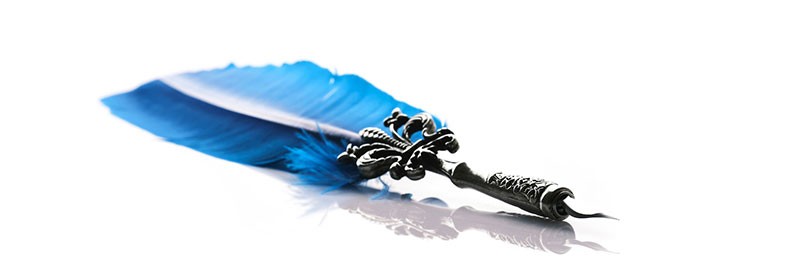Intellectual Property Insights from Fishman Stewart
Mini Article – Volume 23, Issue 14
Share on Social

From Quill to Copyright: The First US Copyright Registration
By Kristyn Webb
Have you ever wondered what was the very first work to receive a copyright registration in the United States? Perhaps you have wondered. Perhaps you know the answer. If not, here is a hint: it is a type of book that might be studied by children like Dev Shah, the fourteen year old from Florida who correctly spelled “psammophile” to win first place at the Scripps National Spelling Bee earlier this year.
Before we get to the answer, let’s set the scene with the backstory for context. The year was 1790—only seven years after the signing of the Treaty of Paris which formally recognized the independence of the US from Great Britain and one year after George Washington, the first US president, took office. Congress had just passed the nation’s first federal copyright statute: the Copyright Act of 1790. Washington picked up his quill and signed the bill into law on May 31, 1790.
That statute was very narrow and only granted copyright protection to books, maps, and charts for an initial term of 14 years, and a renewal period of another 14 years. Nonetheless, just days after the law was enacted, John Barry, a distinguished bookseller and printer based in Philadelphia, Pennsylvania, saw the significance of protecting intellectual property in a rapidly developing nation. On June 9, 1790, Barry registered the “Philadelphia Spelling Book” which aimed to provide education and literacy to young learners, serving as a valuable resource for spelling, vocabulary, and pronunciation. Because the US Copyright Office was not yet in existence (and would not exist until 80 years later), Barry registered the copyright in his book with the U.S. District Court of Pennsylvania.
The book, while relatively modest in scope, played a pivotal role in demonstrating the necessity of copyright laws to safeguard the creative endeavors of authors and publishers. The successful registration of Barry’s work under the Copyright Act of 1790 set a precedent and paved the way for countless authors, artists, and mapmakers to follow suit, safeguarding their creations and encouraging a vibrant cultural landscape.
Perhaps Barry’s book also achieved its aim of instilling goals of good spelling in the nation’s youth. The Scripps National Spelling Bee, an annual competition for children fourteen and under who compete to be the top speller, is a televised event that is watched by 7.5 million people. Again, congratulations to Dev Shah on his win!
Kristyn Webb is the Group Leader of Fishman Stewart’s Copyright Practice Group, and is currently earning a Master’s Degree in Copyright Law at King’s College London.

Published July 28, 2023


Related Content from Fishman Stewart
People have long pondered whether or not the Giza pyramids were indeed solely burial chambers, which was the only known, and archaeologically determined, use—until now.
By 1930, efforts began in New York to replace Mother's Day with Parent's Day because men were more than just breadwinners. Those efforts didn't catch on, probably because in that era, women often spent more time in the home.
In February, Nike and Skims announced that they will be working together on a new brand, NikeSkims. The co-brand will create a new line of training apparel, footwear, and accessories specifically designed to meet the unique needs of women athletes.
Generally, federal courts have exclusive jurisdiction over copyright cases, and often, this presents an insurmountable paywall for individual artists and small businesses to vindicate their rights, especially where the value of the individual copyrighted works are relatively low.
Dedicated to raising public awareness about the importance of encouraging innovation and creativity throughout the world, the World Intellectual Property Organization (WIPO) annually observes World Intellectual Property Day on April 26 to showcase the role that patents, trademarks, industrial designs, copyrights and trade secrets play in our everyday lives.
Hold onto your foam fingers, sports fans – college sports just got a whole lot more interesting! The latest updates to Name, Image, and Likeness (NIL) rules are making student-athletes bigger than ever, and it’s not just about the game anymore.
Did a federal court in Louisiana recently decide that US copyrights are global rights? It seems so.
One of his most famous songs, “Lose Yourself” was recently at the center of a lawsuit. In 2019, Eminem’s publishing company Eight Mile Style sued Spotify claiming that Spotify streamed a number of its musical compositions without proper licenses.
One of the most common challenges is whether AI should be free to train on data that is protected by copyright and owned by third parties without first obtaining permission.
The U.S. Copyright Office (USCO) recently published its latest report on AI and “copyrightability.” In short, the USCO considers only some AI-generated works to be sufficiently creative as to deserve copyright protection, and thus, registration.
IDENTIFYING, SECURING AND ADVANCING CREATIVITY®












